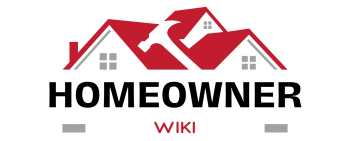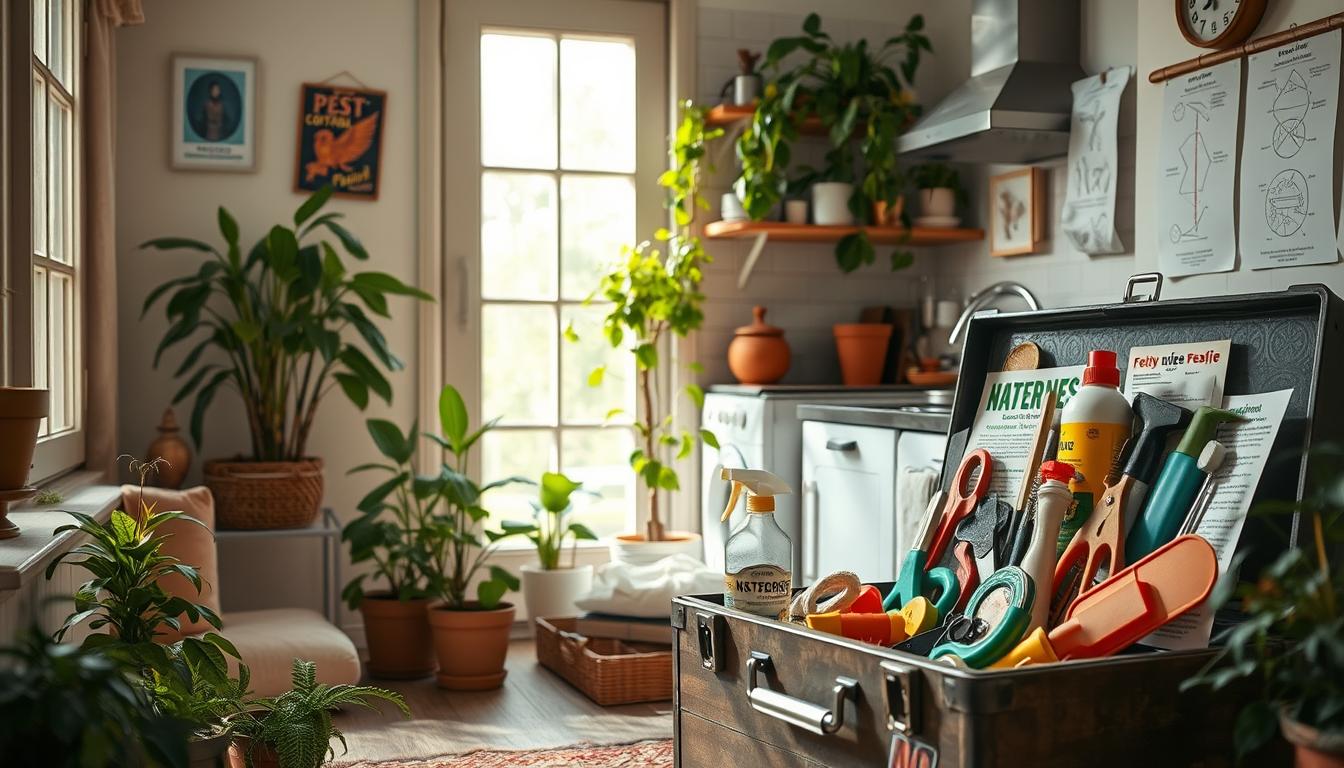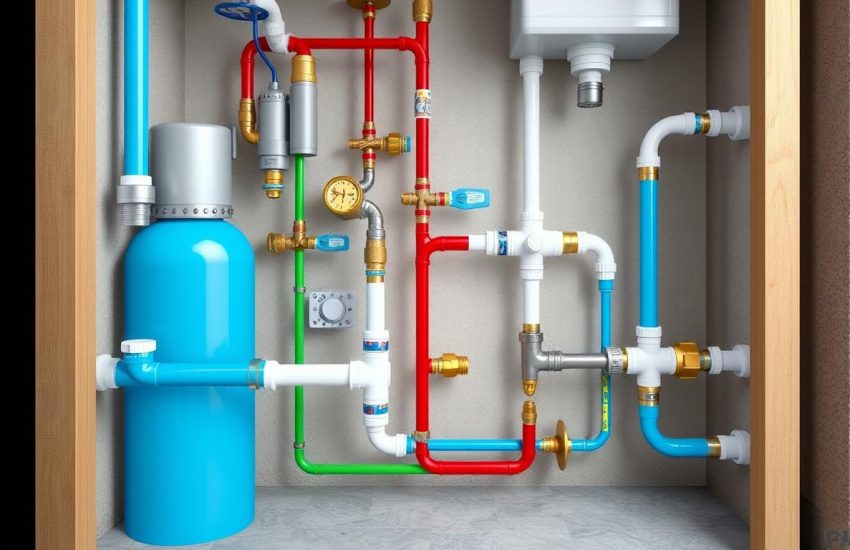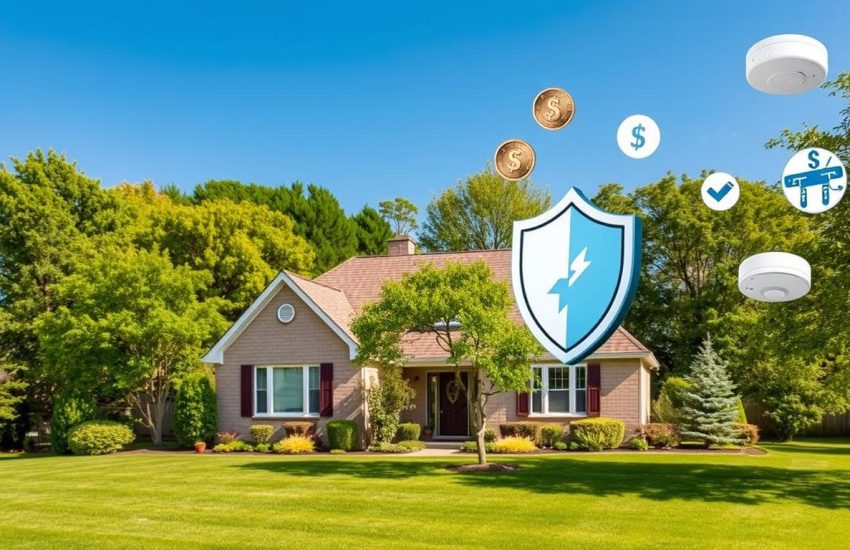Pest Control: A Complete Guide for Homeowners
Have you thought about how a pest-free home makes you relaxed and healthy? Good pest control keeps you ready instead of only reacting to bugs. This guide shows you how to keep pests away for good.
Knowing how to manage pests is key. This is true if you’re moving in or updating your home. Working with managers or landlords helps fight pests like mice or bed bugs. Being proactive and knowing pest signs protect your home and health. Follow this guide for a home free from pests.
Key Takeaways
- Proactive pest control is key to long-term home comfort and health.
- Collaboration between homeowners and property managers enhances pest prevention efforts.
- Regular maintenance checks can prevent costly infestations and property damage.
- Affordability does not necessitate a sacrifice in quality when it comes to keeping your home pest-free.
- Integrated Pest Management (IPM) is a sophisticated and environmentally conscious approach to pest control.
- Choosing the right pest control service entails considering licensing, insurance, and adherence to local regulations.
- Education on pest prevention and proper identification of issues are foundations of a reliable pest management strategy.
Why Focus on Pest Control?
Pest control keeps your family and home safe. It stops serious health risks and property damage. Learning about effective pest management strategies is key to avoiding these dangers.
Integrated Pest Management (IPM) uses a smart approach for pest control. It blends eco-friendly methods with less chemical use. This helps the environment and fights pests. Pests like rodents cause 25% of unexplained fires in the U.S. by chewing on wires.
Some pests, like cockroaches, carry allergens that trigger asthma. They affect over 60% of U.S. homes. Mosquitoes spread deadly diseases, killing nearly a million people each year worldwide.
| Pest | Related Health Risk | Impact on Property |
|---|---|---|
| Rodents | Fire hazards from chewed wires | Structural damage |
| Cockroaches | Allergens causing asthma | Contamination of surfaces |
| Mosquitoes | Carriers of malaria, Zika | Limited direct impact |
Good pest management, like IPM from F&W Pest Control, offers detailed checks. It gives tailored treatments for your specific situation. This promises lasting pest control and safety. Experts like All Star Pest Management highlight the need for regular checks. They provide solutions right for your property.
Pest control helps avoid health risks and property damage. It mixes clean habits, fixing homes, and using natural pest fighters. Cleaning regularly, closing pest entry points, and caring for yards are key steps.
Paying attention to pest control shields more than your home. It ensures a safe space for your family, free from pests and related illnesses. So, adding pest management to your home care is a smart move.
DIY vs Professional Help
Homeowners often choose between DIY pest control and professional pest control. Each has its advantages. Knowing when to use each can save time, stress, and money.
DIY methods work well for small pest problems. People use store-bought traps and sprays. These can help against pests like spiders or stink bugs. Yet, saving on pest control isn’t just about upfront costs. DIY often means more applications. Wrong use can also be unsafe and less effective.
However, professional pest control offers specialized solutions. They are best for termites, rodents, and cockroaches. These experts use the right tools and techniques. They often get rid of pests quicker and with fewer tries than DIY.
- Initial Cost Consideration: DIY seems cheaper, but many treatments can cost more over time.
- Efficiency and Effectiveness: Professional help might cost more at first but solves problems better in the long run.
- Safety and Peace of Mind: Experts use safe, high-grade products, keeping your family and pets safe.
Knowing the differences helps homeowners make smart choices about pest control. They should think about long-term results, not just saving money now. Sometimes, using DIY pest control with professional checks can keep your home pest-free.
| Pest Control Method | Effectiveness | Cost Concern | Recommended For |
|---|---|---|---|
| DIY | Up to 30% success rate for minor pests | Lower initial; higher cumulative | Minor or nuisance pests |
| Professional | Highly effective; tailored treatments | Higher initial; lower long-term | Dangerous/Destructive pests |
| Hybrid | Effective for minimizing infestation risks | Cost-effective balance | Periodic professional checks with DIY maintenance |
Choosing DIY pest control or professional help depends on the pest problem’s size. With many pests posing different threats, understand and plan well. This ensures successful pest control.
How to Save Money
Finding affordable pest control is key for homeowners who want to keep costs down. It’s important to keep homes free from pests. Choosing between DIY or professional pest management can greatly affect your budget.
DIY pest control is both cheap and fast. Homeowners can quickly deal with pests themselves. For instance, buying diatomaceous earth for about $25 on Amazon helps tackle pests easily. This is much cheaper than hiring exterminators. Professionals might use products like Talstar Pro. It works on over 75 types of pests but is more expensive.
DIY pest treatments usually take about 30 minutes every three months for a medium-sized home. This saves money. It also helps homeowners keep a close eye on any pest problems.
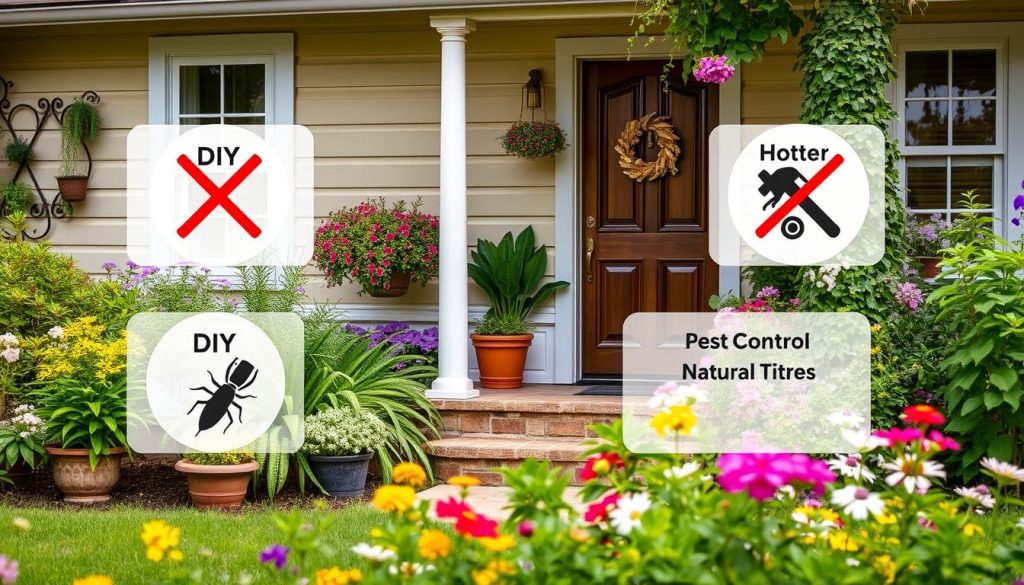
Preventing pests is also crucial. Keeping your home clean and sealed keeps pests out. This avoids high costs from major pest problems. Being proactive saves money in the long run.
| Cost Comparison | DIY Pest Control | Professional Pest Control |
|---|---|---|
| Initial Cost | Less than $50 annually | $300 to $700 annually |
| Time Investment | 30 minutes quarterly | Depends on service plan |
| Annual Savings | Up to $400 | Regular inspections included |
Landlords or owners of multiple homes can save even more. Managing pest control themselves might save up to $2000 a year. DIY pest management is not only cost-friendly but also scalable.
Step-by-Step Upgrades
Making your house pest-free involves smart changes. These changes go well with home improvement ideas. By doing these upgrades, your home becomes more comfortable and without pests.
- Seal Entry Points: Start by finding and sealing spots like loose windows or old pipes where pests get in.
- Regular Cleaning: Keeping your home clean is key. Get professionals to help clean before, during, and after you make changes. This helps keep pests away.
- Proper Waste Disposal: Manage your trash well to keep rodents and other pests away.
- Standards in Food Storage: Always use tight containers for food. This helps stop ants and rodents from coming.
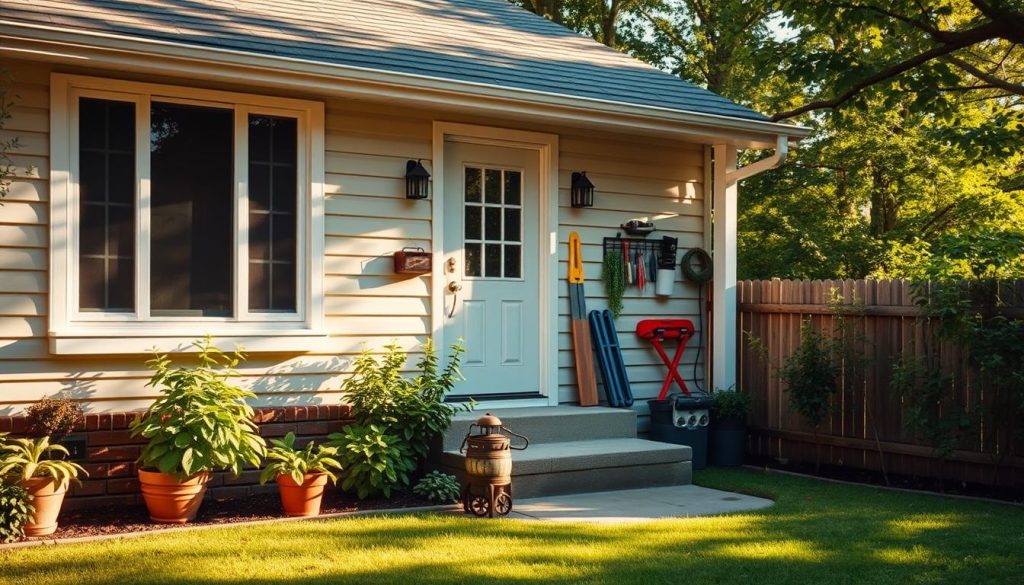
Pest Control Tips: Regular pest control by pros helps keep your home pest-free. Here are some facts about how important this is:
| Pest Issue | Percent of Houses Affected | Average Control Cost |
|---|---|---|
| Cockroaches | 11.29% | $300 – $550 |
| Rodents | Data not Specific | Up to Thousands |
| General Pests (flies, mosquitoes, spiders) | Data not Specific | $300 – $550 |
Keep your yard tidy and reduce standing water. You can also use special light bulbs to lower pests. These steps support the pro methods and keep pests away effectively.
Each step in this pest control tips guide helps get rid of pests. It also makes your place better. By doing these upgrades, you stop pests before they start. This keeps your home safe and looking good.
Final Tips for Success
To keep your home pest-free, using proven methods is key. About 70-80% of your success comes from knowing pests well. Also, checking your home often cuts damage in half. Sticky traps are very helpful for this.
When to act against pests is also crucial. Use natural pest fighters when pests are most active. This can cut pest numbers by 50-60%. With experts in charge, your pest control gets even better, up to 30% more effective. Plus, good homes for these helpers can push success up to 70%.
Using smart pest strategies cuts pesticide use by 30% and boosts crop growth by 40.9%. This method saves money and increases benefits. Services with the latest tech provide updates on pests and improve how we use chemicals. Pest-free living means a better, safer home for a long time.
